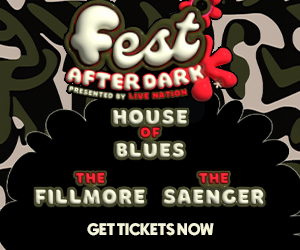Mike Zito is making the most of his second chance at a first-class life.
In May, the Memphis-based Blues Foundation’s Blues Music Awards named Zito best blues-rock artist. It’s his second BMA. In 2010, Zito and Cyril Neville won the blues song of the year award for their collaboration, “Pearl River.” This year also saw the release of Zito’s 15th album,




